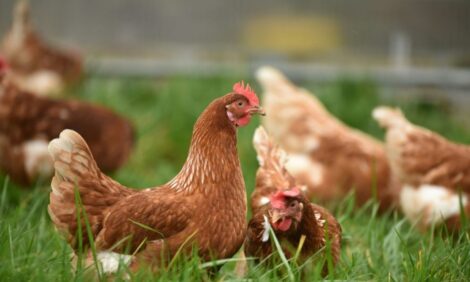



Egg Grading
By The Canadian Food Inspection Agency - Grade requirements are set for eggs to protect the consuming public from undue risk. In grading eggs, the factors of interior quality, weight, cleanliness and shell construction are considered. These factors are related to safety, wholesomeness and quality. Eggs are graded in a registered egg station to ensure they are handled and packed in a sanitary environment.Why do we grade eggs?
Regulations in place to protect consumers require that eggs from federally registered egg grading stations that are graded as Canada A (consumer grade eggs) must be clean and free of leaks, cracks or other defects that could present food safety problems.
What happens in an egg grading station?
In a grading station, eggs are received, washed, candled, weighed and packed into containers with the applicable federal grade name in an inspected, sanitary environment.
Receiving:
Eggs are received and held in a sanitary, refrigerated holding area which is separate from the area where the eggs are graded.
Washing:
Eggs are washed and sanitized in water of regulated temperature and acidic balance. Washing removes dirt and any bacteria adhering to the shell.
Candling:
Eggs pass over a bright candling light by means of a conveyor that transports and, at the same time, rolls the eggs. The light makes the internal contents of the egg visible allowing a determination of internal defects to be made (i.e. blood spots, meat spots, rot, poor quality yolk, air cell size, etc). By rolling the eggs as they pass over the candling light, the entire outer surface of the egg can be seen by the grader.
The light makes cracks in the shell visible (some cracks are very difficult to see until candled) and also allows dirt, stains, or excessively rough shelled eggs to be seen. By this process, the Candler can determine whether each egg meets the grade requirements for Canada A. Defective eggs, leaking eggs and rejects are removed by the Candler and the eggs that meet Canada A grade requirements proceed to the scales to be weighed.
Weighing:
Eggs are weighed and sorted according to size category for Canada A grade eggs (Jumbo Size, Extra Large Size, Large Size, Medium Size, Small Size and Peewee Size). Each of the sizes has a weight requirement that must be met.
Packing:
Eggs are packed in containers according to their grade and size (if Canada A grade).
Storage:
Eggs are stored at an appropriate temperature in the Graded Cooler until they are loaded into a vehicle for transport to the retail location.
What does the Canadian Food Inspection Agency (CFIA) do in federal egg grading stations?
The CFIA inspects all registered egg grading stations to ensure that proper sanitation and operating requirements are being met. CFIA takes environmental samples at egg grading stations to detect the presence of Salmonella. The CFIA also collects samples from egg grading stations as part of its program to test for residues.
What is the process for getting registered as a federally registered egg grading station?
Operators apply to the CFIA to have an egg grading station federally registered. Operators must show the Agency they meet the all of requirements of the Egg Regulations. The requirements cover all aspects of operation including construction, equipment, access to potable water, handling and packaging of eggs. All the requirements are designed to ensure that eggs coming from federally registered egg grading stations are handled and packaged in a clean, sanitary environment and are properly labelled.
On what grounds can a federally registered egg grading station lose its registration?
The CFIA can suspend or cancel the registration of a federally registered egg grading station if the facility does not meet the provisions of the regulations, if the operator is not complying with the regulations or if it is reasonable to believe that public health will be endangered if the egg station is allowed to continue operating.
Source: The Canadian Food Inspection Agency - March 2006








